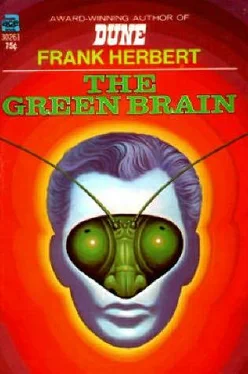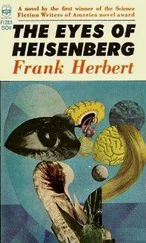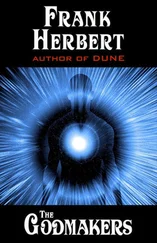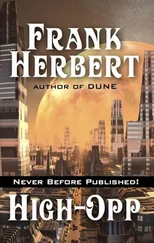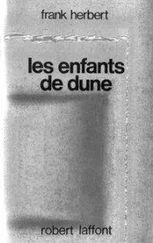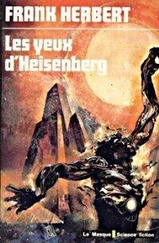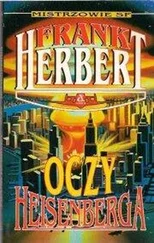And he cursed himself for not noticing the change in water color earlier.
“What’s wrong, Johnny?” Chen-Lhu asked.
“Nothing we can do anything about.”
Joao eased the throttle back another notch, another. The motors sputtered, died. He shut off all fuel.
Wind whistled around them as Joao eased back on the wheel, trying to gain as much distance as possible. The pod began to stagger at the edge of stalling. He tipped the nose down, still nursing it for distance. But the pod flew like all pods—gliding like a rock.
The wind of their passage was an eerie whistling that filled the cabin.
The river curved off to the left through more drowned land. A thin furrow of turbulent water marked the main channel. Gently, Joao banked the pod, turned to follow that furrow. The water rushed up to meet them. The pod began to yaw and Joao fought the controls.
Floats touched in a splashing, rocking motion with too much drag. An eddy turned the pod. The right wing began to drop—lower, lower.
Joao aimed for a brown sand beach on their left.
“We’re sinking,” Rhin said, and her voice conveyed both surprise and horror in a flat tone of understatement.
“That right float,” Chen-Lhu said. “I felt it hit the net.”
The left float grated on sand, stopped, spun the sinking float in a short arc until it, too, touched. Something gurgled under the water to the right and a burst of bubbles lifted to the surface. Less than six millimeters of air remained between the right wing tip and the water.
Rhin buried her head in her hands and shuddered.
“Now what?” Chen-Lhu asked. And he felt shocked amusement as he heard the dismay in his own voice.
Now it is the end , he thought. Our friends will find us here. It is the end for sure .
“Now we repair the float,” Joao said.
Rhin lifted her face from her hands, stared at him.
“Out here?” Chen-Lhu asked. “Ahhh, Johnny… ”
Rhin pressed the back of her left hand against her mouth, thought: Joao—he just said that to keep me from despair .
“Certainly, out here!” Joao snapped. “Now shut up while I think.”
Rhin lowered her hand, said, “Is it possible?”
“If they give us enough time,” Joao said.
He broke the canopy seals, folded it forward. The sound of brawling water impressed itself on his senses. He unfastened his safety harness, all the while looking around, studying the air, the jungle, the river.
No insects.
Joao climbed out, slipped down to the slanted surface of the left float, studied the jungle beyond the beach: a confusion of interlaced branches, vines, creepers and tree ferns.
“There could be an army just inside that jungle and we couldn’t see them,” Chen-Lhu whispered.
Joao looked up. The Chinese stood at the inner edge of the cabin.
“How do you propose to repair the float?” Chen-Lhu asked.
Rhin appeared beside him, waited for the answer.
“I don’t know yet,” Joao said. He turned, looked downstream. A line of ripples moved up the river there, pushed by a wind out of a furnace. The ripples fanned out before the wind and grew as the wind grew. Then the wind died. Air and water wavered in the damp heat. A pressure of heat radiated from the pod’s metal and from the beach.
Joao slid off into the water. It felt warm and thick.
“What about the cannibal fish?” Rhin asked.
“They can’t see me; I can’t see them,” Joao said. “A fair exchange.”
He splashed around beneath the rocket motors. The smell of unburned fuel was strong there and an oily glaze of it was beginning to trail off downstream. Joao shrugged, bent and ran a hand gently along the outer edge of the right float, wading forward as he explored the hidden surface.
Just back of the leading edge, his fingers encountered a jagged rip in the metal and trailing remnants of Vierho’s patch. Joao explored the hole. It was a dismayingly big one.
Metal scraped as Chen-Lhu dropped down to the left float, a sprayrifle in his hand. “How bad is it?” he asked.
Joao straightened, waded out to the beach. “Bad enough.”
“Well, can it be fixed?” Chen-Lhu demanded.
Joao turned, looked at the man, surprised by the grating quality in Chen-Lhu’s voice.
He’s frightened silly! Joao thought.
“We’ll have to get that float out of the water before I can be sure,” Joao said. “But I think we can patch it.”
“How’ll you get it out of the water?”
“Vines… a Spanish windlass, limbs for rollers.”
Rhin spoke from the cabin: “How long?”
“By tonight, if we’re lucky,” Joao said.
“They won’t give us that long,” Chen-Lhu said.
“We gained thirty or forty kilometers on them,” Joao said.
“But they, too, can fly,” Chen-Lhu said. He raised the sprayrifle, aiming upstream. “And here they come.”
Joao whirled as Chen-Lhu fired, was in time to see a broad front of spray-bursts knock down a fluttering line of white, red and gold insects, each as long as a man’s thumb. But more came behind… and more… and more…
“And again it flew,” the Brain accused.
The messengers on the ceiling danced and hummed their report, made way for a new group flitting in like bits of golden mica through the sunlight at the cave mouth.
“The vehicle is down and badly damaged,” the newcomers reported. “It no longer floats on the water, but lies partly beneath the water. The humans do not appear to be damaged. We already are leading the action groups to the place, but the humans are shooting their poisons at everything that moves. What are your instructions?”
The Brain worked to quiet itself for computation and decision. Emotions… emotions , it thought. Emotions are the curse of logic .
Data-data-data—it was loaded with data. But always there was that shading-off factor. New events modified old facts. The Brain knew many facts about humans—observational facts, some achieved deductively and inductively, some garnered from microfilm libraries the humans had stored in the Red against the time of their return.
So many gaps in the data.
The Brain longed then for the ability to move about by itself, to observe with its own sensors what it could only gather from messengers now. The wish brought a rash of fuzzy signals from the dormant and almost atrophied muscle-control centers. Nurse insects scurried over the Brain’s surface, feeding where these unusual demands arose, countering with hormonal additives the frustration blockages that for a moment threatened the entire structure.
Atheism , the Brain thought, as chemical serenity returned. They spoke of atheism and heaven (religion-subtended) . These matters puzzled the Brain. The conversation, reportedly, had come out of an argument and pertained somehow to the human mating pattern… at least among the humans in the vehicle.
The insects on the ceiling jittered through a repetition of their message. “What are your instructions?”
What are my instructions?
My instructions.
I… me… my .
Again, the nurse insects scurried.
Calmness returned to the Brain, and it wondered at the fact that thoughts—mere thoughts—could bring such upset. The same thing appeared to occur with humans.
“The humans in the vehicle must be captured alive,” the Brain commanded. (And it realized the command was a selfish one. It had so many questions for this trio.) “Take in all available action groups. Locate a suitable place downriver, better than the last one, and post half the action groups there. The other half must attack as soon as possible.”
The Brain subsided without releasing its messengers, then, almost as an afterthought: “If all else fails, kill everything except their heads. Save and maintain their heads.”
Читать дальше
